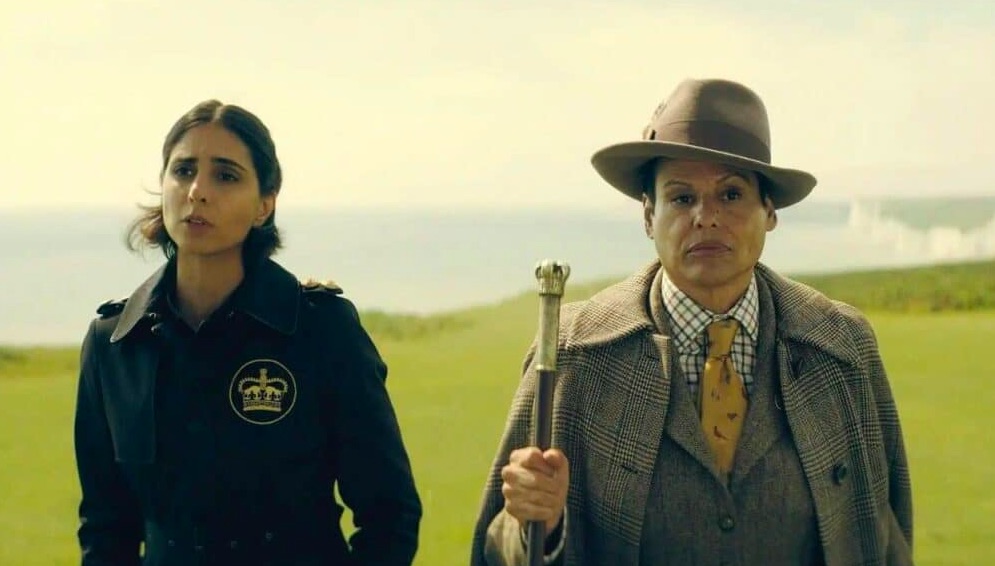Prime Video’s ‘The Peripheral’ spins the story of two different worlds set in the future. While one takes place just a decade later than our timeline, the other part is set in the twenty-second century. These jumps in time allow the show to explore many fictional aspects of science. Instead of going into the details of everything, it gives us a passing knowledge of these things, just enough to keep us in the loop of what’s happening in the story and how it could affect the futures of the characters. This means that a lot of jargon is thrown around but most of it is left to the viewer’s imagination. The term “the Aunties” is one of them. If you are curious about what this term means and the significance it has in the world created by ‘The Peripheral’, then here’s what you should know about it. SPOILERS AHEAD
What are the Aunties?
One of the things that set ‘The Peripheral’ apart is the show’s use of terms that give the audience a very different perspective on things. For example, it refers to an apocalyptic event that destroyed most of the population of the world as the Jackpot. Clearly, the people in the future have a sense of humor that allows them to name things differently than people in other post-apocalyptic worlds. The same goes for the term ‘the Aunties’.

The term is first mentioned by Inspector Ainsley Lowbeer while she interrogates Flynne Fisher in an attempt to gauge her character as well as the nature of her intentions. She describes the Aunties as the data sorting algorithms. In any other world, a sophisticated name would have been chosen to describe a system that seems to have the responsibility of the world on its shoulders. But the people in the twenty-second century view things from a different lens, and hence, the Aunties is the title designated to the algorithm.
While the Inspector refrains from giving more information about the Aunties, it is understood that this algorithm is one of the most powerful programs in the future. It is used to keep an eye on the people, including Klepts and the RI, while also keeping tabs on the open stubs. The algorithm also keeps information on everyone and seems to be the one thing that can dig out details that are otherwise not available to the general public.
In the book by William Gibson, on which the TV show is based, the Aunties are called “self-organizing” algorithms and so “nobody fully understands them”. They have a mind of their own, and this keeps them out of the control of a normal person. For now, only the Inspector seems to be the one that has access to the Aunties. One of the lines in the novel further explains the working of their system. Their process is described as “akin to repetitious dreaming, or the protracted spinning of a given fiction”. This means that they are capable of running scenarios and, in a way, predicting things. It was through this that the Inspector told Flynne that her mother is not going to survive, no matter what.
Because of their ability to pick up on the things that would otherwise go unnoticed and their access to constant surveillance, it is also possible that the Met police use them to solve cases. They are the constant eyes and ears of the Inspector, which is what makes her such an intimidating character. On several occasions, we find Zubov and his employees exercising caution in what they say to each other even in the Inspector’s absence. This proves that the Aunties are everywhere, spying on everyone.
Still, they are not described as completely foolproof. In the book, the Inspector accepts that they are not “invariably correct”, but “over a sufficient course they do tend to find the likely suspects.” Considering the many ways in which they serve the Inspector, it is likely that Flynne’s association with her will put her in touch with the Aunties. We will, undoubtedly, find out more about them in the next season.


You must be logged in to post a comment.